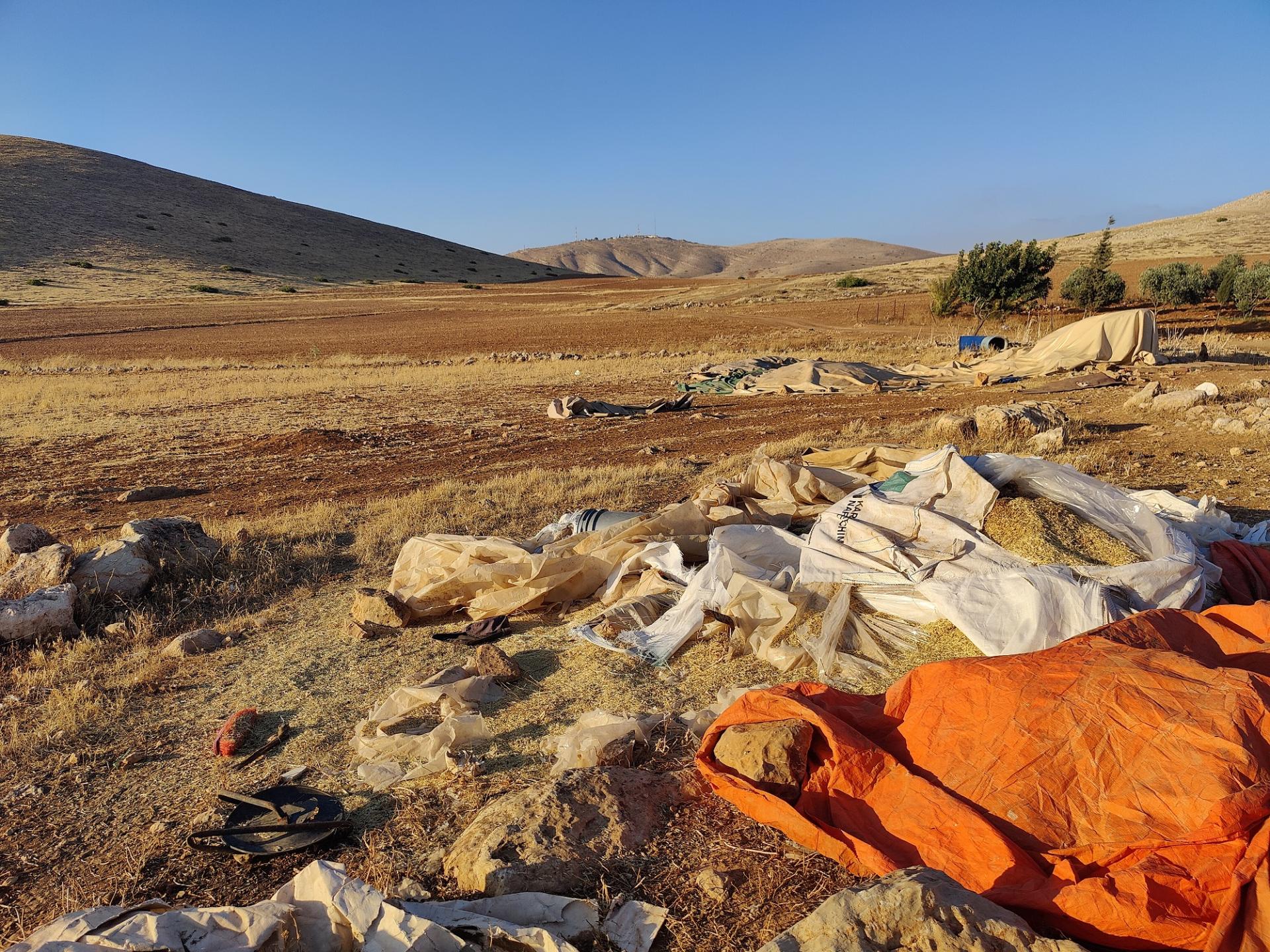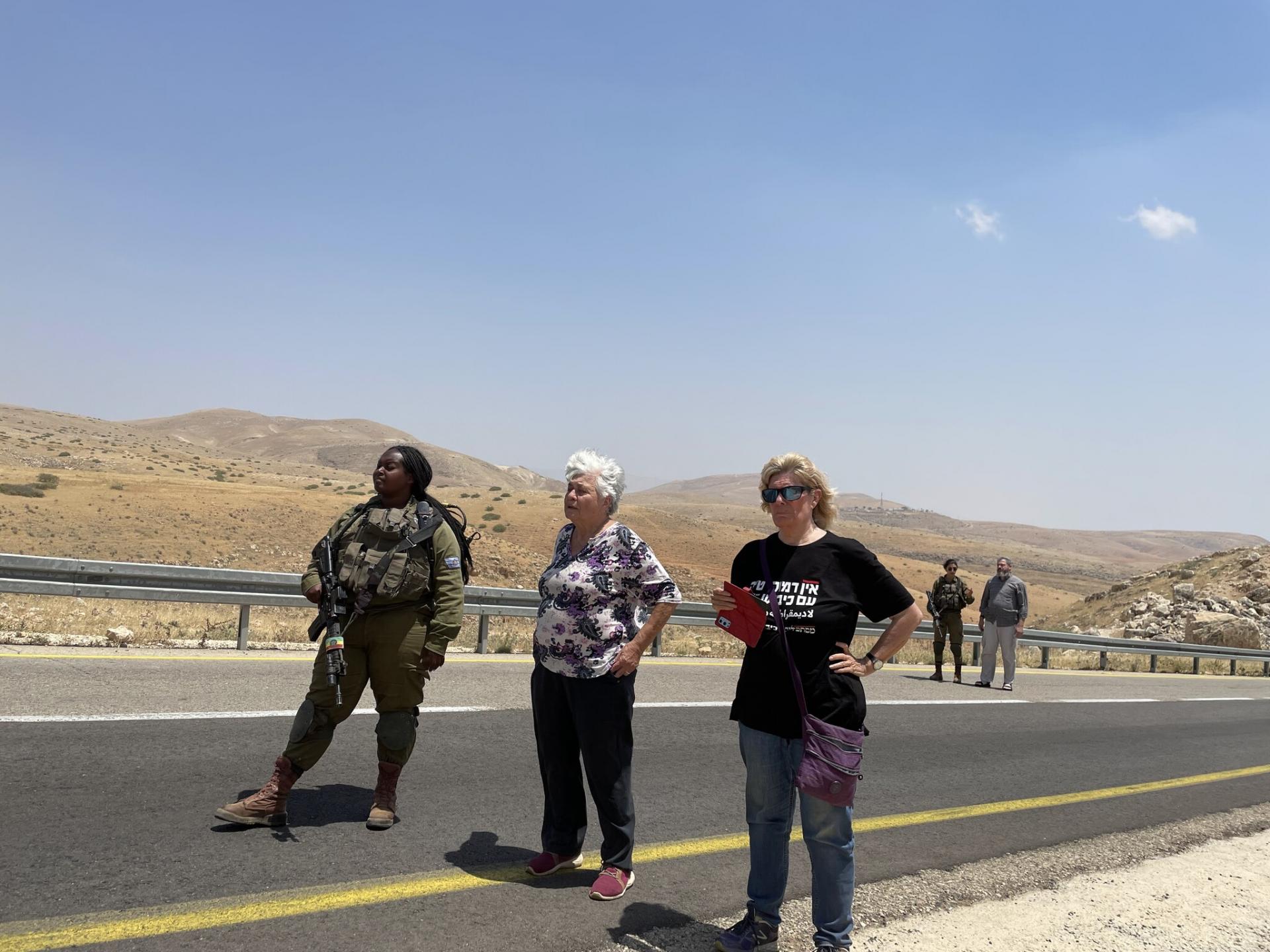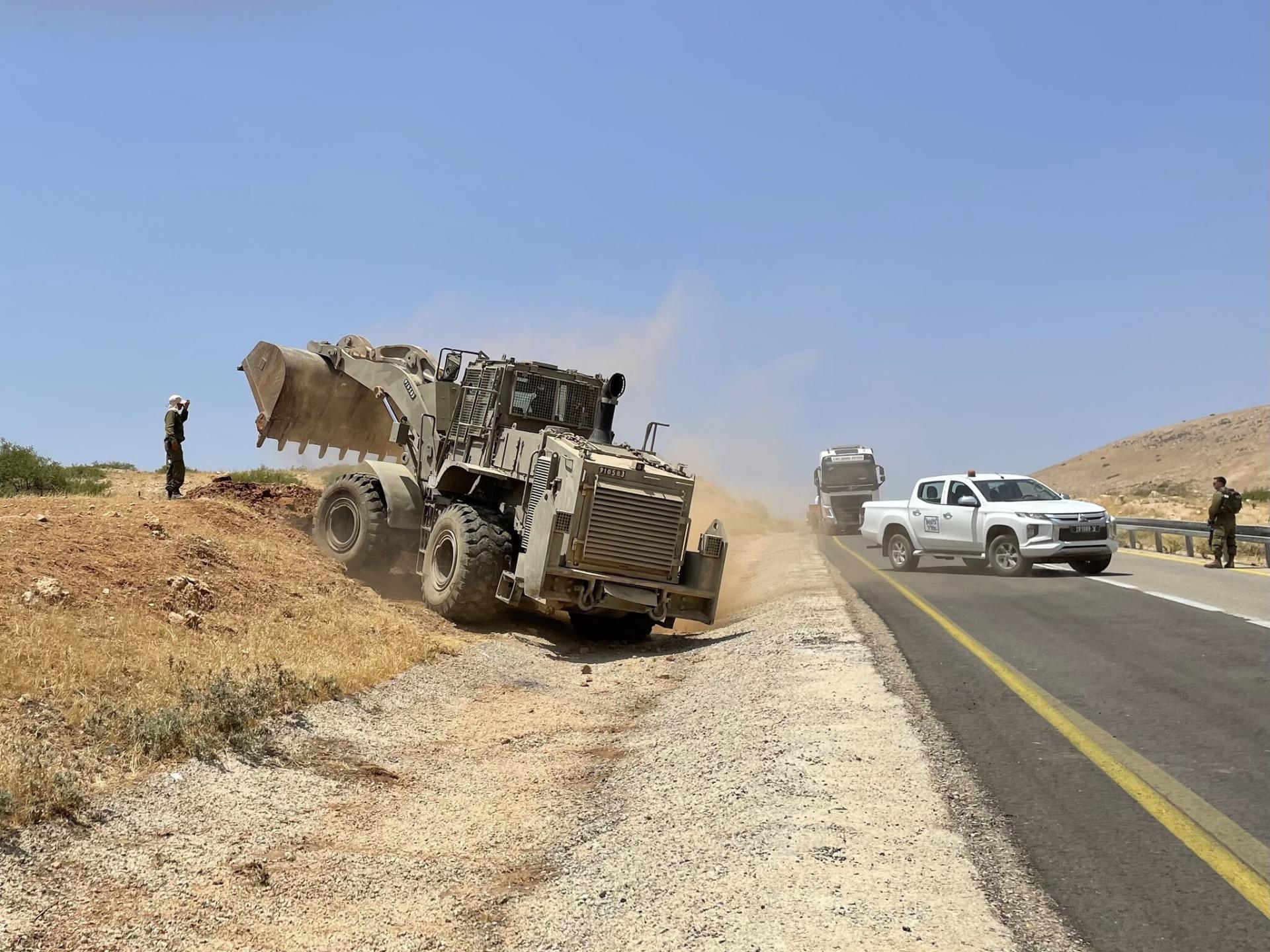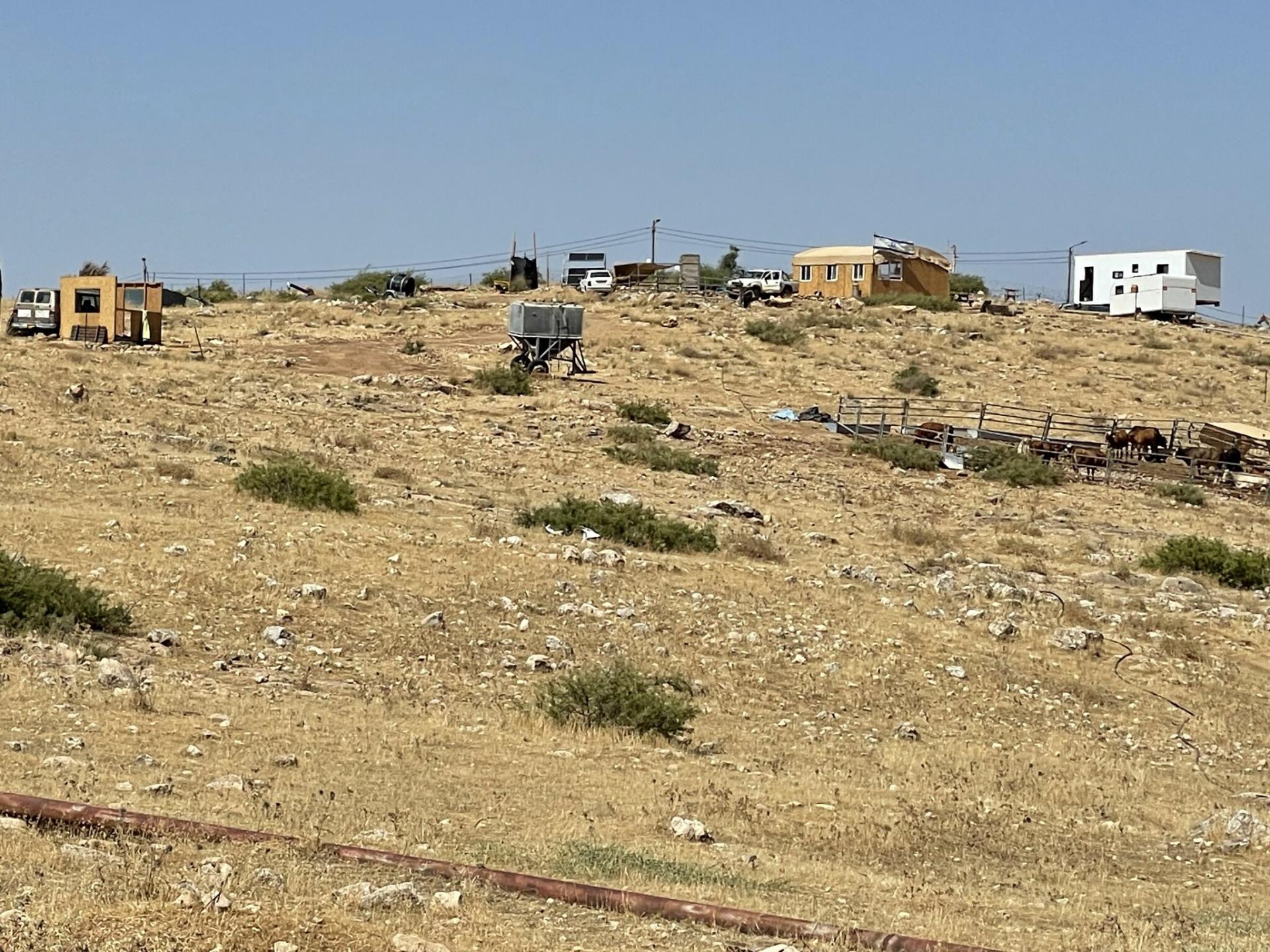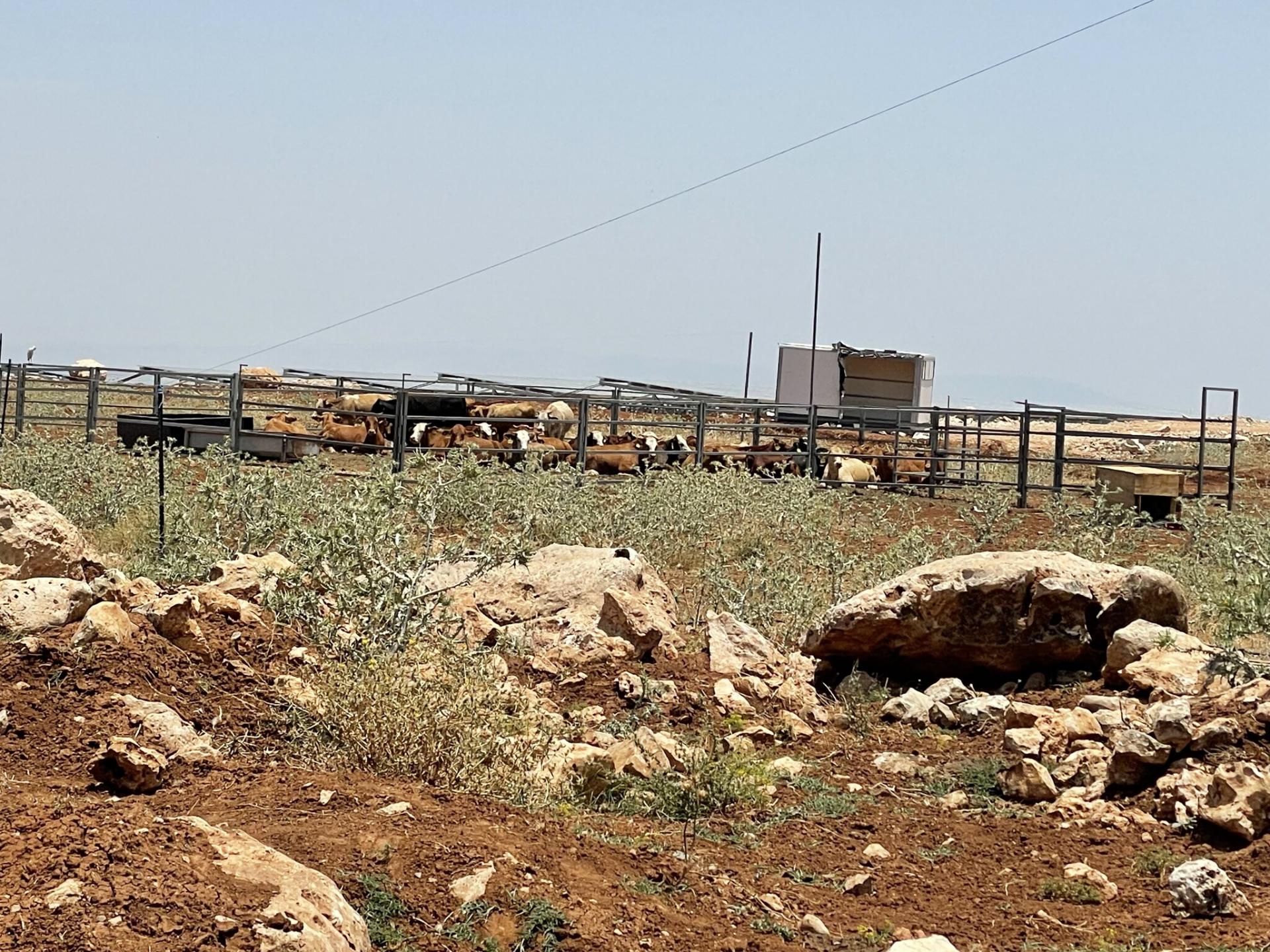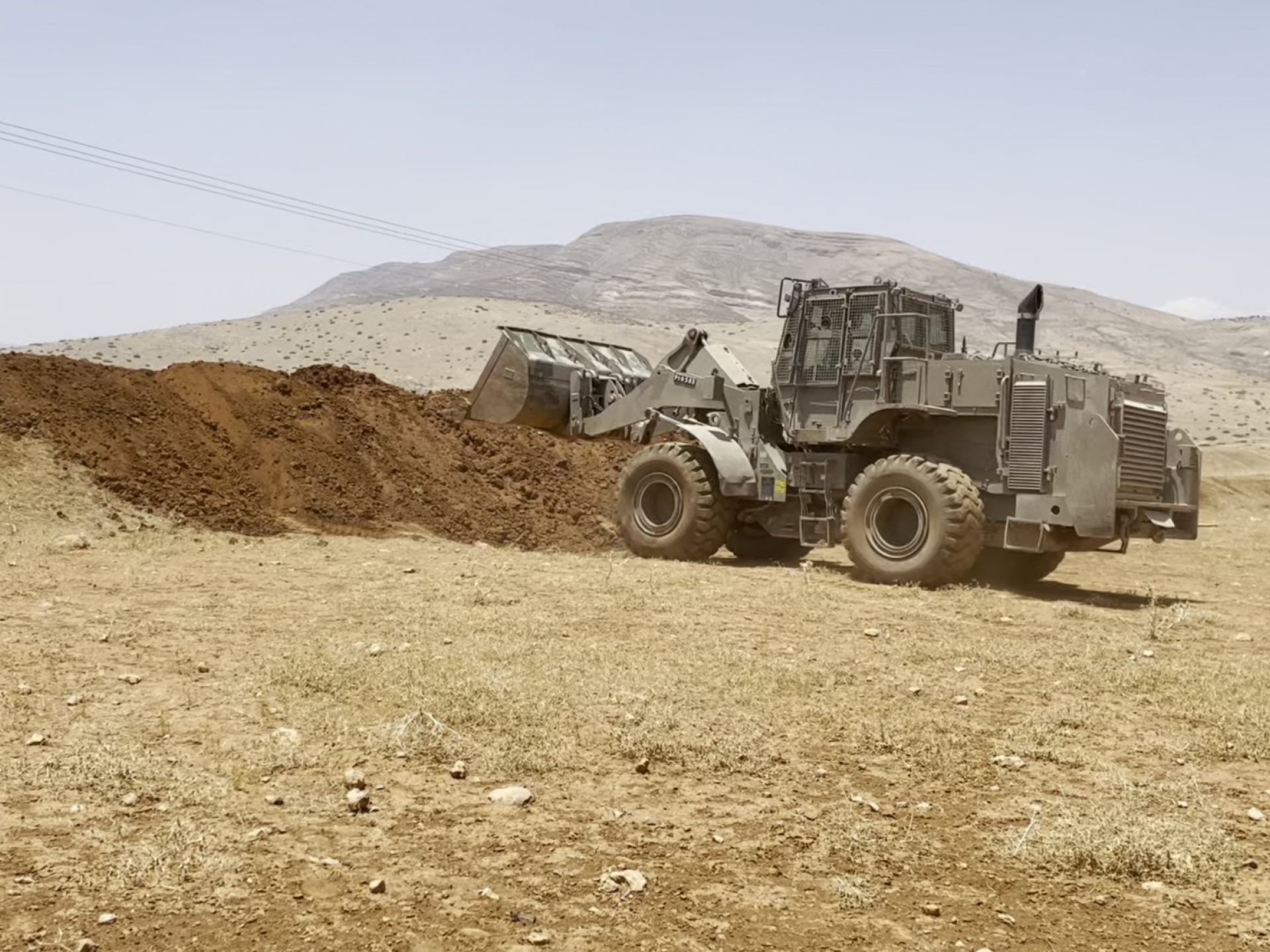The IDF is the most moral army in the Jordan Valley
Next to the Gitit colony’s new solar farm, a new Jewish colonist outpost has sprouted. We assume this happened about two months ago. It contains a family with 4 children, among them an adolescent and a baby . A flock of about 15-20 cows is corralled near the residential part.
. A flock of about 15-20 cows is corralled near the residential part.
On our way we were notified that the army is conducting earthworks in the region, in order to block Palestinian usage of several routes opposite the Beqa’ot colony. The earth dykes along the Alon Road in this area have been renovated and made higher by the army as well.
Upon arrival, we realized that work was ongoing. A military bulldozer blocked the route leading from Tamoun to the Allon Road. The meaning is simple: to deny Tamoun and its area’s farmers access to their fields, east of the earth dykes, as well as preventing their flocks from getting to their grazing grounds. But the colonists who have erected a new outpost near Beqa’ot colony graze their cattle peacefully in the very same grazing grounds, having done away with the local Palestinian shepherds.
The works are accompanied by a military team: a contractor hired by the army, and soldiers, among them armed women-soldiers who follow the goings-on from afar.
Another new colonist outpost has been established in the area. Its colonists moved there lately (apparently in May 2023) and may be settling there permanently, next to the Beqa’ot colony. They own a cattle flock of 15-20 head in order to begin taking over grazing grounds. For the past year they have greatly harassed the Palestinian shepherds and must have turned to the Israeli army in their demand to block the Palestinians’ access.
After the earthen blockage was made higher, the bulldozer and soldiers turned to the road and drove southward to the first block, beginning to renew and make higher another earthen dyke, denying access of flocks and shepherds from Al Mixar living north of the road, denying the access of children for the road where they get on their school bus, as well as denying passage of vehicles and water tankers. Water is critical in order to continue life in the Palestinian Jordan Valley!
The armed women-soldiers stood on the road, their faces oblivious to Daphne’s explanations of the importance of the route - just now blocked – to the lives of the Palestinian population.
We visited F. at Humsa. The mother, older daughters and small children welcomed us warmly. F. claimed no one visits her, which makes her very sad. Their encampment is near the dirt track that connects the communities and leads to the firing zones. That is where they had lived before the home-demolition tsunami which has often been reported, about two years ago. In the meantime, the families have erected new homes for themselves and their flocks. F. said that colonists often use the track. Perhaps they are staring at the area where the Palestinians are now located, and may be interested in the area that has been vacated.
In the evening we visited Abu Saker at Hadidiya. He described the way he was arrested. The pretended reason for this arrest was an old rifle bullet found near one of the surrounding hills. It was full of sand, he says, and smiles about the surreal “reason” for his arrest. The soldiers trashed their belongings in order to find weapons, which the family does not possess at all. Nothing was found. But their things and clothes were thrown outside the encampment (no problem, we brought everything back in, says Abu Saker) but this was not enough for the soldiers. They let out their anger on the plastic partition that is used as a kitchen “wall” – they tore it up and poured water on the outdoor oven in order not to demolish it as well. Finally, they scattered the sheep feed that was stored in a pile under a plastic sheet.
Yes. The Israeli army is the world’s most moral army.
Abu Saker was released after three days in custody and a trial. In addition to the financial damages wrought by the army in his compound, he had to pay a lawyer and another 2000 NIS to the court itself in order to be let out.

